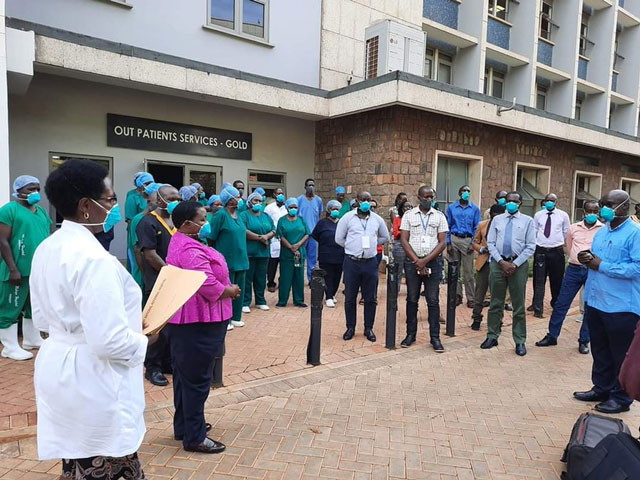
Kampala, Uganda | THE INDEPENDENT | Thousands of coronavirus recovered patients discharged from hospitals are not being followed up by the Ministry of Health , eliciting fears that many could be silently battling COVID-19 health after-effects.
According to several health officials, there is no mechanism to follow up.
This leaves thousands of recovered COVID-19 patients exposed to conditions such as fatigue, racing heart beats, shortness of breath, achy joints, foggy thinking and persistent loss of smell as after-effects of having been infected with COVID-19.
In other cases, damage to the heart, lungs, kidneys and also brain have been reported.
Studies carried out in the United States, United Kingdom and Sweden on COVID-19 after-effects show that patients, even asymptomatic ones that were not hospitalised developed other health conditions due to COVID-19. A study published in July in the cardiology journal JAMA showed that 78 people out of 100 who did not not have any cardiac abnormality before falling sick had developed abnormalities after being treated for COVID.
Dr William Worodria, a senior consultant in chest pain at Mulago hospital and also the head of COVID-19 case management says that the ministry has not had a clear set out protocol to follow up with patients.
He says due to large number of patients, responsibility of following up on patients has been left in the hands of patients who are expected to go to health facilities once they notice they are not fine.
“Because the numbers are huge, follow up is on a case by case basis. When patients are being discharged, we normally tell them to follow up with a medical visit if they develop a health related issue because most of our patients do not have any underlying mobidity,” he says.
Originally, the health ministry had proposed to carry out counselling and follow up visits for discharged patients. The ministry had also proposed to carry out community sensitization in communities where patients come from to avoid stigma. However, six months after the country announced its first case, there is no proper mechanism to follow up on patients.
As of today, Uganda has discharged 1,528 people. Eighty percent of these have been asymptomatic patients while 20 percent have either had moderate or severe cases of the disease.
Andrew Banga, a recovered COVID-19 patient who was discharged three weeks ago told URN that he has not experienced any major health related problem since he was discharged.
“Right now I am fine. I have not experienced anything. I am back to work. The only thing I experienced was a lack of taste but that only lasted for like two or three days after I was discharged. But now am fine,” Banga said.
Worodria says that the ministry is however working towards addressing the situation. He says they plan on using an automated internet program that will routinely check with discharged individuals after they are discharged.
“We have designed an internet based system which is automated and when rolled out, it will check on all people who are discharged to try and find out what is happening,” he said.
Patients with pre-existing conditions like diabetes and hypertension are encouraged to visit a doctor at least two weeks after they are discharged for a check up.
According to Worodria, the system is still being piloted in another programme run by the Infectious Disease Institute. Once it is rolled out, recovered patients will be asked to provide their contact information, mainly a mobile number. Numbers of patients will be fed into the system which will in return send general automated questions to try and determine their health condition.
For now, recovered patients such as Banga, are on their own.
******
URN
 The Independent Uganda: You get the Truth we Pay the Price
The Independent Uganda: You get the Truth we Pay the Price



